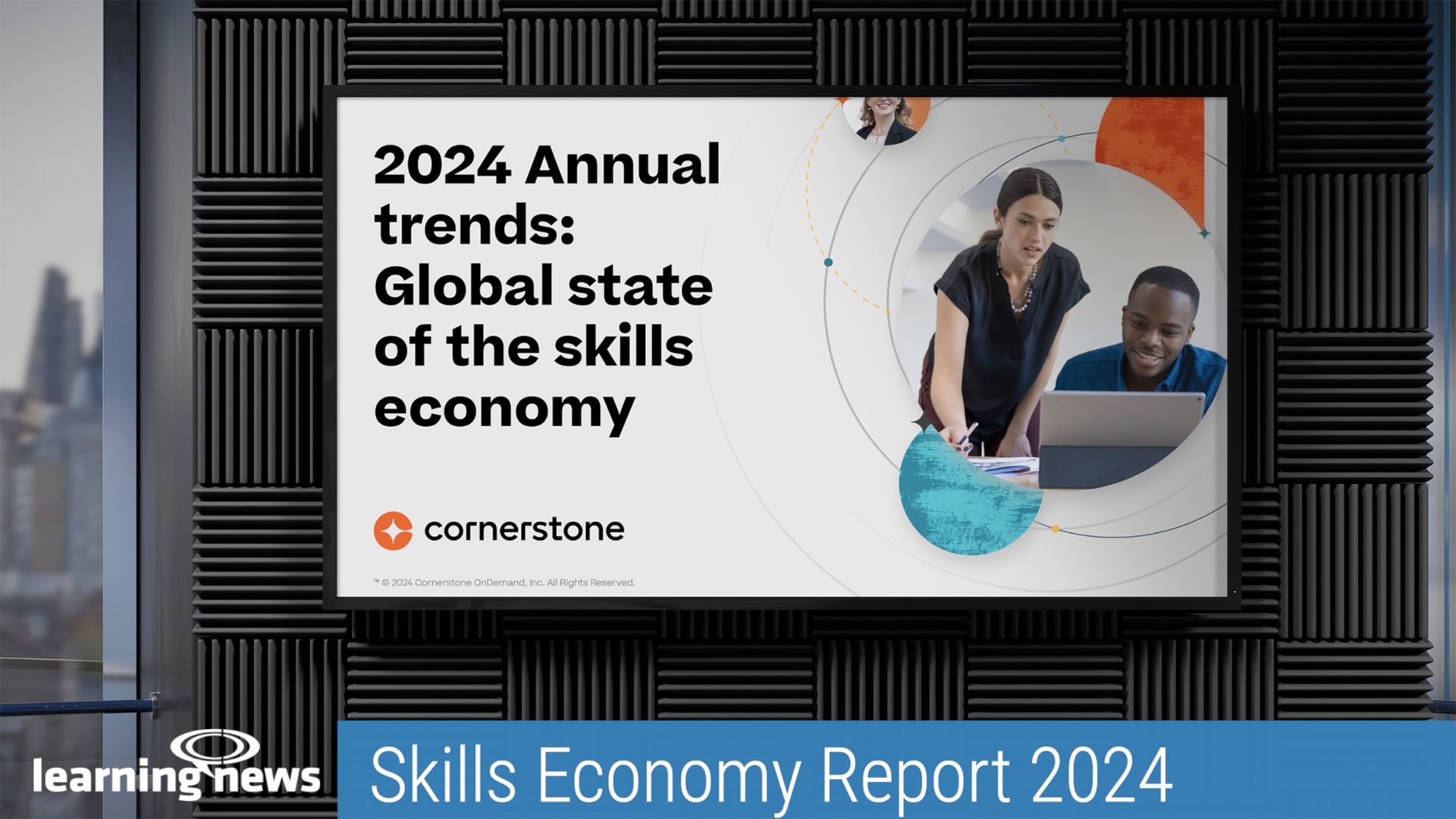Skills economy report 2024
Mike Bollinger, Cornerstone OnDemand, joins Learning News to discuss in-demand skills and future skills trends.
It used to be that economic success relied on physical assets: factories and infrastructure. As the global economy grew its source of economic value shifted.
Today, intangible assets: skills, knowledge, IP have a larger share of the economic value than the physical assets. Companies investing in these things tend to grow faster and outperform those that don't.
Companies with strong learning cultures are 92% more likely to meet market demands. Their employees are two and half times more likely to adapt to change. And, on average, these company's profits are 24% higher than those that are not prioritising skills.
We reported in September that skills has, for the first time, moved ahead of compliance as the biggest driver of learning and development activity.
L&D has got the message, we might even say it's aligned, at least for those with strong learning cultures.
This focus is really important. Skills are changing faster than people can upskill, and our ability to adapt to change is out of sync with the pace of change.
Having the right skills and knowing what skills might be needed next has become a company’s most valuable asset.
Cornerstone has published its annual report into the skills economy. It identifies those skills which are most in demand and assesses the future skills trends. Mike Bollinger heads up the research and shares its findings with Learning News.
Programme links


